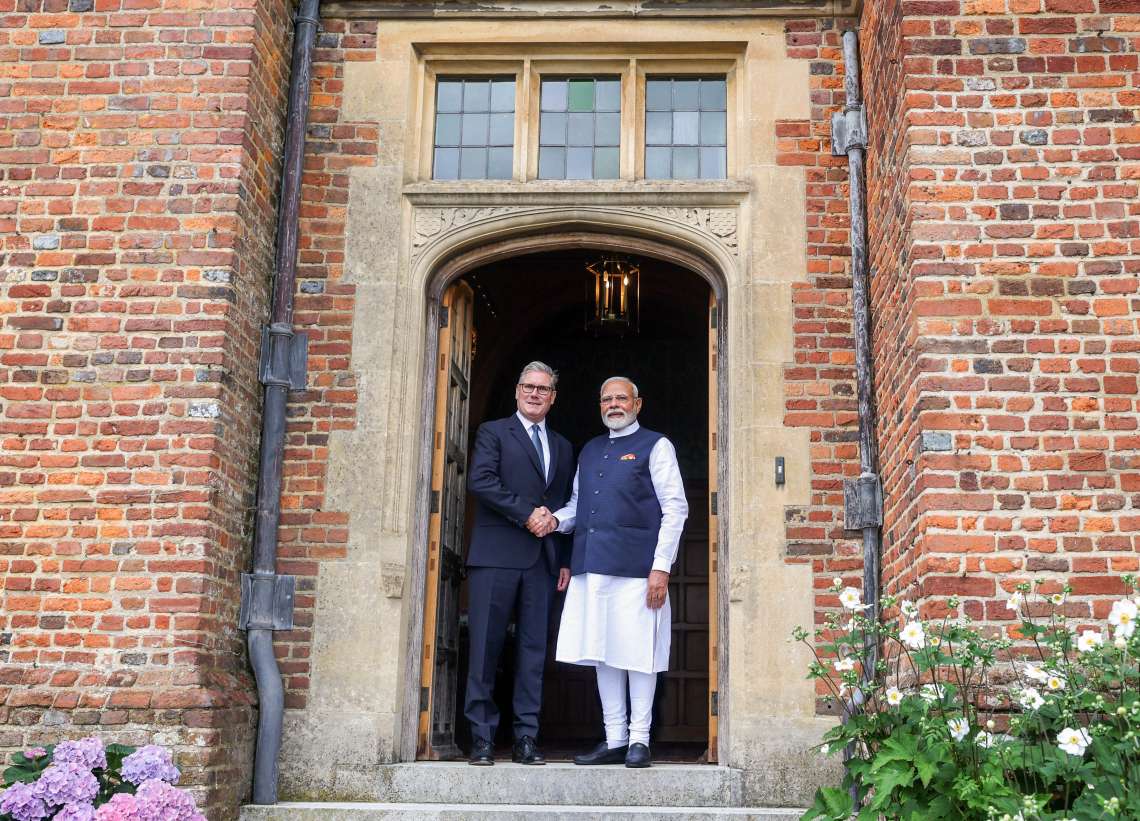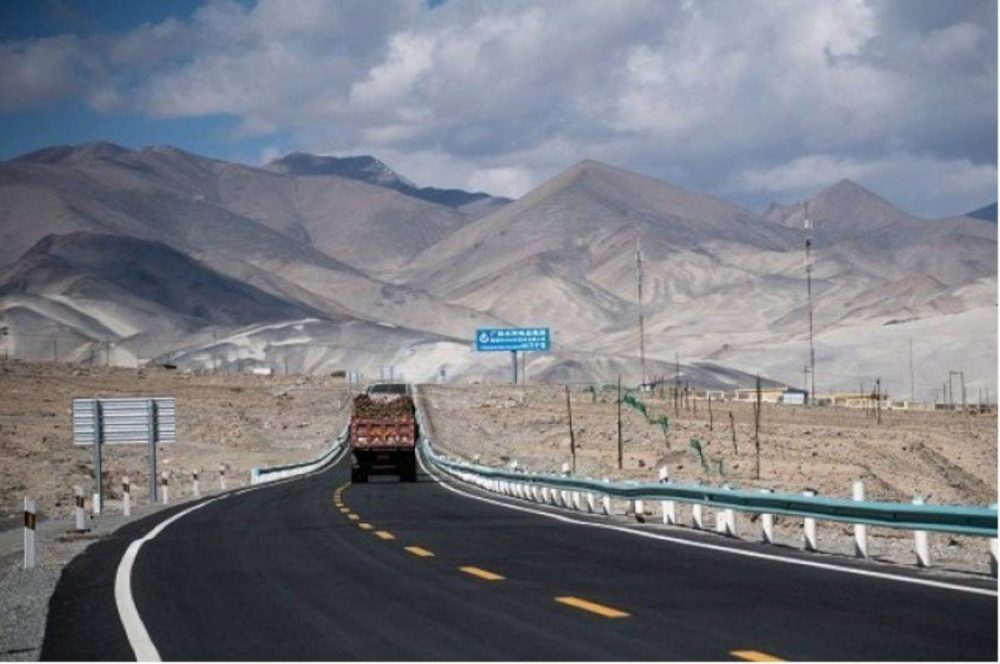With the Union Budget 2024 around the corner, Indian financial markets, corporates, and entrepreneurs have various expectations from the government….reports Asian Lite News
The Union Budget for 2024-25 will be tabled in Parliament this Tuesday by Finance Minister Nirmala Sitharaman, the first under Prime Minister Narendra Modi’s third term.
An Interim Budget was presented by Nirmala Sitharaman on February 1 of this year to take care of the financial needs of the in-between period.
With the Union Budget 2024 around the corner, Indian financial markets, corporates, and entrepreneurs have various expectations from the government. Many have voiced their requests and made presentations before the government as part of pre-budget consultations.
These stakeholders provide liquidity and capital, and their participation plays an important role in the nation’s economic growth and stability.
While talking about the upcoming Budget 2024, CEO and Founder of Fhero Accounting Solutions, Prashant Bothra talked about regulatory changes that may be needed.
He anticipates changes in the Securities Transaction Tax (STT) and taxes on long-term capital gains, and short-term capital gains (LTCG, STCG), and intraday transactions.
As per definition, any profit or gain that arises from the sale of a ‘capital asset’ is a capital gain.
“Additionally, we expect tighter regulations on futures and options (F&O), potentially removing some derivative products to reduce speculative trading. We also request the government to consider extending the LTCG holding period for listed equity shares from one year to two or three years, encouraging longer-term investments,” Bothra added.
A Research Analyst for Trustline Securities Limited, Ankur Saraswat added to this by saying, for agrochemicals, implementing Production-Linked Incentive (PLI) benefits and lowering GST rates can boost local production and reduce costs for farmers.
“The IT sector seeks digitalization and technological advancement, while the healthcare sector needs increased spending on technology integration. The specialty chemicals Industry calls for faster capital expenditure approvals and R&D incentives. Lastly, the steel sector expects reduced taxes on raw materials and higher import duties on Chinese steel to enhance competitiveness. These measures aim to bolster growth and sustainability across sectors,” Saraswat added.
The MSME sector has emerged as a highly vibrant and dynamic sector of the Indian economy over the past decades. This sector contributes significantly to the economic and social development of the country by fostering entrepreneurship and generating employment opportunities.
About creating a more favourable financial environment for MSMEs, Bothra of Fhero Accounting Solutions, adds, “Enhancing MSME competitiveness through ease of doing business is crucial. We anticipate initiatives aimed at reducing compliance burdens, paperwork, and streamlining approval processes.”
Further aligning it with the Viksit Bharat vision, he adds, “The upcoming budget is expected to provide a concrete action plan to support MSMEs. Additionally, the reduction or abolition of the Angel Tax is essential for better funding mechanisms, enabling more investments in MSMEs and fuelling growth. We also expect significant budget allocations for upskilling and reskilling programs in automation, AI, and data analytics to support workforce development and job creation for MSMEs.”
To this, Ankur Saraswat (Trustline Securities) also added, the upcoming budget is expected to significantly impact Indian startup investment.
“Key areas like digital infrastructure, AI, and cybersecurity are likely to see increased allocations, positioning India as a global tech hub. Support for SMEs and skill development, along with encouraging public-private partnerships, will drive innovation and growth. More domestic capital allocation and tax incentives for investors and promoters will further boost the startup ecosystem,” Saraswat added.
Moving on to the bullion sector, another key sector of the economy, there is an expectation that the government will keep focus on continuation of pro-growth and pro-gold policy reforms including further ease of doing business that will aid the industry’s reform and organized growth.
The gold industry is integral to the Indian economy, contributing 1.3 per cent to Indian GDP and employing approximately 2-3 million people.
“In the current Union Budget, we are expecting there will be a general policy thrust aimed at higher economic growth that will provide tangible benefit for gold as well, as it is well established that income growth is the single dominant factor in long term gold demand,” said Sachin Jain, Regional CEO, India, World Gold Council.
The World Gold Council also urged the government to significantly reduce import duty on gold from current highs of 15 per cent.
“Government is cognizant of the fact that gold prices have risen to historic highs of Rs 74,000/10 gram and at present total taxes on gold is over 18 per cent (including 15 per cent of import duty) and such high taxes act as incentives for getting gold into the country from illicit routes, impacting tax compliant industry stakeholders,” said Jain.
Jain also suggested that there is a need to facilitate the orderly growth of the digital gold market to protect and promote micro-savings through transparent digital gold channels and to deter any unscrupulous fly-by-night operators from misusing the emerging opportunity.
“The government should consider bringing out appropriate guidelines and regulatory oversight that would introduce checks and balances to ensure customers of digital gold are protected and a transparent way to buy and hold gold digitally, aligned with the broader economic agenda on digitalization of assets, is promoted,” Jain asserted.
Gold, considered a safe investment bet, has been in demand for a considerable period, with its prices rallying to hit record highs now and then. Gold is a scarce commodity, and any mismatch in demand-supply conditions may invariably trigger a sharp price rise.
Further, Ajai Rana, Chairman of the Federation of Seed Industry of India, also weighed in and suggested his industry’s recommendation to the government.
Research and development (R&D) in agriculture, he said, demands significant investments and long-term commitment, involving multi-year, multi-environment evaluations requiring extensive resources.
“To encourage private-sector investments in R&D in agriculture, particularly, seeds, the industry seeks a conducive policy and regulatory environment. Establishing a mechanism to recognize R&D-focused seed companies based on certain qualifying criteria, through creation of a National Register is the foremost expectation from Budget 2024,” Rana said ahead of Budget. (ANI)
ALSO READ: Pope Francis calls for Olympic truce for countries at war














